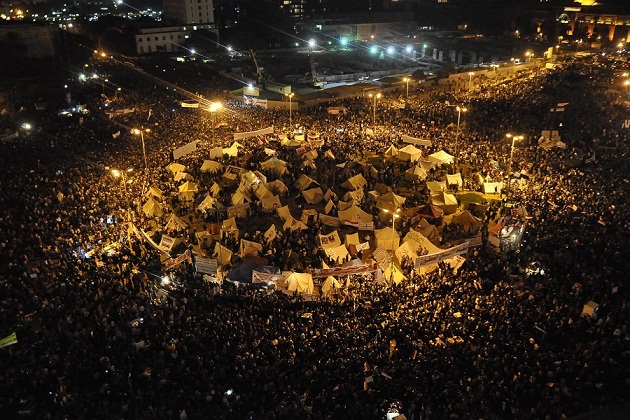BRUSSELS: Arab Spring protesters bent on bringing freedom to Tunisia, Egypt and Libya are "the strongest answer" to the 9/11 attacks of a decade ago, the European Union said Friday.
But marking the anniversary of the traumatic events in the United States, the EU also urged action against Europe’s far-right populist parties as well as efforts to fight extremist propaganda on the internet.
"Ten years on, the people in the streets of Tunis, Cairo, Benghazi and across the Arab world have sent a strong signal for freedom and democracy," said EU president Herman Van Rompuy and European Commission president Jose Manuel Barroso.
"This is the strongest answer to the fatuous hate and blind fanaticism of the 9/11 crimes," they added in a joint statement.
Remembering the victims of the 9/11 and other terrorist attacks, the two EU leaders said Europe remained "shoulder to shoulder with our friends and allies in the global fight against terrorist networks and their economic backbone."
The EU would continue to boost law enforcement cooperation and protect transport systems and critical infrastructure, they said.
Seeking to counter extremism in Europe, Cecilia Malmstroem, EU commissioner for home affairs, ripped into populism as she launched a grassroots network to spot potential terror recruits, from hardline Islamists to far-right lone wolves.
"One of my major concerns is the lack of leadership we see today in Europe, with more and more populist parties influencing the European agenda," she said in a speech.
"I am not saying that these parties are directly responsible for terrorist attacks, but we must acknowledge that they provide oxygen — and increasing acceptance — for extreme views."
Malmstroem recalled that Europe was hit by radical Islamist attacks in Madrid and London but also most recently by a Norwegian far-right extremist who killed 77 people in a bombing and shooting rampage in Norway.
EU states and the European Commission have not taken enough action against the growing radicalization in the continent, and traditional law enforcement tools alone are not enough to counter extremism, she said.
The EU Radicalization Awareness Network that she launched brings together community leaders, teachers, police, victims and youth associations to prevent radicalization from taking root at the local level.
"They are well placed to see signs that people are becoming radicalized and risk becoming violent," the Swedish politician said, adding that one area to focus on was the Internet.
"The increasingly sophisticated use of the internet and social media by violent extremists adds an extra layer to security challenges," she said.
"One task for the network should therefore be to find ways of challenging terrorist propaganda and supporting forces for good so that their voices can be heard."

